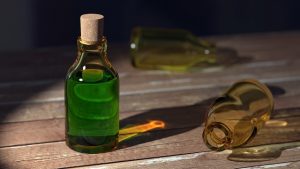Can Humans Produce Poison?
 Would we be able to produce poison? Well, human beings are unlikely to join the plethora of venomous animals that inhabit the Earth today. However, it is not impossible. That’s right, you did not misread. According to a recent report, published by the LiveScience news portal, both mammals and reptiles have all the necessary tools to produce poison.
Would we be able to produce poison? Well, human beings are unlikely to join the plethora of venomous animals that inhabit the Earth today. However, it is not impossible. That’s right, you did not misread. According to a recent report, published by the LiveScience news portal, both mammals and reptiles have all the necessary tools to produce poison.
And what would these tools be? According to the report released by the LiveScience news portal, the tools are limited to a collection of highly flexible genes, which are particularly associated with the salivary glands. These genes, in recent research, have succinctly revealed how venom evolved – independently of the non-poisonous ancestors that inhabited the animal kingdom.
“Essentially, we have everything we need to start producing poison,” revealed doctoral candidate in evolutionary genetics Agneesh Barua. As explained by the researcher, who is currently conducting research on the subject at the Okinawa Institute of Science and Technology, in Japan, “we just need to evolve to do this”.
Poison and research
Poison production is common throughout the animal kingdom. The substance is present in several creatures, such as spiders, snakes and slow lories – one of the only poisonous primates that exist in the world. In many of these living beings, the venom is produced by modified salivary glands – that is, they are quite different from the ones we have.
“The discovery of Barua is a milestone in the field,” said Bryan Fry, a biochemist and poison expert at the University of Queensland in Australia. “The information is absolutely sensational and the studies are extraordinarily complete.”
Even though our salivary glands are different from those of animals that produce venom, what makes Barua’s study relevant is nature’s flexibility . According to the researcher, many of the toxins that are present in some poisons are commonly found in different species.
“Some components that are present in the venom that centipedes produce are also found in some snake venoms,” points out Ronald Jenner, a venom researcher at the Natural History Museum in London.
To validate his research, Barua did not focus on toxins – as the poison evolves rapidly due to the complex mixture of compounds. Instead, researcher and study co-author Alexander Mikheyev, an evolutionary biologist at the National University of Australia who focuses on “household” genes, focused on a class of genes that are associated with the venom but are not responsible by the creation of toxins.
Humans and the production of poison
 In short, these regulatory genes form the basis of the entire venom production system. “To better understand the whole scenario, we started by studying the genome of an Okinawan brown viper. Once we know the function of all the genes that were present in the animal, we distinguish which genes are associated with the venom,” said Barua.
In short, these regulatory genes form the basis of the entire venom production system. “To better understand the whole scenario, we started by studying the genome of an Okinawan brown viper. Once we know the function of all the genes that were present in the animal, we distinguish which genes are associated with the venom,” said Barua.
In the midst of their analysis, the team’s researchers found a constellation of genes that are common to all amniotes – animals that fertilize their eggs internally or lay eggs in the earth; these animals include reptiles, birds and some mammals.
“Many of these genes are involved in the production of proteins,” said Barua. “And that makes perfect sense, because venomous animals must manufacture a lot of toxins , which are basically made of proteins.”
Interestingly, the same types of regulatory genes are found in abundance in the human salivary gland, which also produces an important protein ‘stew’. This genetic basis is what allows for the wide variety of poisons that are independently developed throughout the animal kingdom.
Poisonous
The research therefore points out that every mammal or reptile has the genetic structure that can constitute a venom production system. Humans, in the meantime, are no exception, mainly because they produce a key protein that fuels poison production: kallikreins.
Even though kallikreins are a natural starting point for humans to theoretically start producing poison, we scientists say we will never develop such an ability because the production of poison depends so much on how the animal lives.
“It is evolution that adapts the production of poison. This involves the needs of an animal. This is basically due to natural selection,” said Fry. “Humans throughout history have developed tools, weapons and structures to meet most of their own needs without having to rely on poison production.”
…






